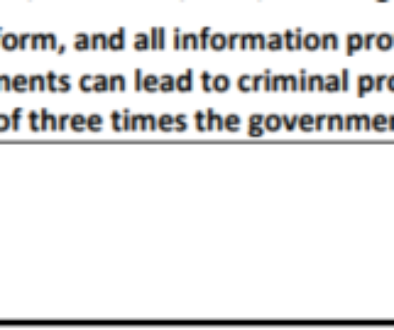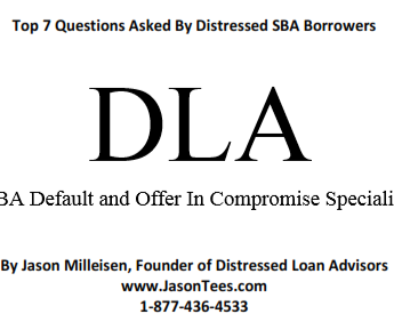What’s the worst that can happen to me if I default on an SBA loan?
Oh man, where do we start? Not to be the bearer of doom and gloom, but there are some very severe consequences to defaulting on an SBA loan. They can foreclose on your home if it has equity in it. They can shut down your business and sell all the business equipment. They can get a personal judgment against you, and subpoena you for information. If you don’t respond to the subpoena, in some states you could be arrested. If you didn’t pledge your home to start with, in some states they can place a judgment lien on your property that will remain there until you sell the property. In a nutshell, default is bad, and you should be proactive about settling.
When I make a settlement offer, does it go through my lender or directly to the SBA?
It depends on whether your lender has referred the matter to the SBA. In most cases of default, the lender continues to service the matter until they feel that all avenues have been exhausted, and there is no chance of additional recovery.
Once the lender reaches that point, the file is “wrapped up” and referred to the SBA for further collection efforts. Once the matter is referred to the SBA, the borrower and guarantors will typically get a letter from the SBA. If you receive such a letter, your lender is no longer involved in the negotiation, and you are free to deal directly with the SBA. On the other hand, if you defaulted on your loan recently, and there is collateral remaining that has not been liquidated, you will most likely have to continue to deal with your lender. If you try to deal with the SBA directly, chances are that they will refer you back to your lender.
My bank has not responded to my SBA settlement offer. Am I off the hook?
Probably not. In today’s economy, the “workout” areas at many banks are busting at the seams. There are simply too many files, and not enough hours in the day to give proper attention to each file. Just because they aren’t calling you back or responding to your emails, it doesn’t mean you have slipped through the cracks. I often hear from people who stopped paying 3 years ago, assumed the matter was long gone, then out of the blue they get a letter from the US Treasury (or a collection company on their behalf). To add insult to injury, they typically will add on thousands of dollars in fees and penalties. So if your lender is not being responsive, I suggest that you stay persistent, or hire a workout consulting to stay persistent on your behalf.
My bank told me that because my loan is guaranteed by the SBA, they cannot settle. Is that true?
No, but I’ve heard this amazing tale enough times that I think its worth addressing. The SBA has created a process, and specific forms, solely for the purpose of settling debt for less than the full balance. If your lender is throwing road blocks up and blaming the SBA, its likely because 1) Your lender doesn’t do a lot of SBA lending and is not aware of the OIC process 2) Your lender does not want to settle, and is trying to blame the SBA (Note: lenders are not required to settle, although most are willing to).
Distressed Loan Advisors (http://www.JasonTees.com) offers expert advice about dealing with SBA Loan Default and Forgiveness, and can be reached at . or..


